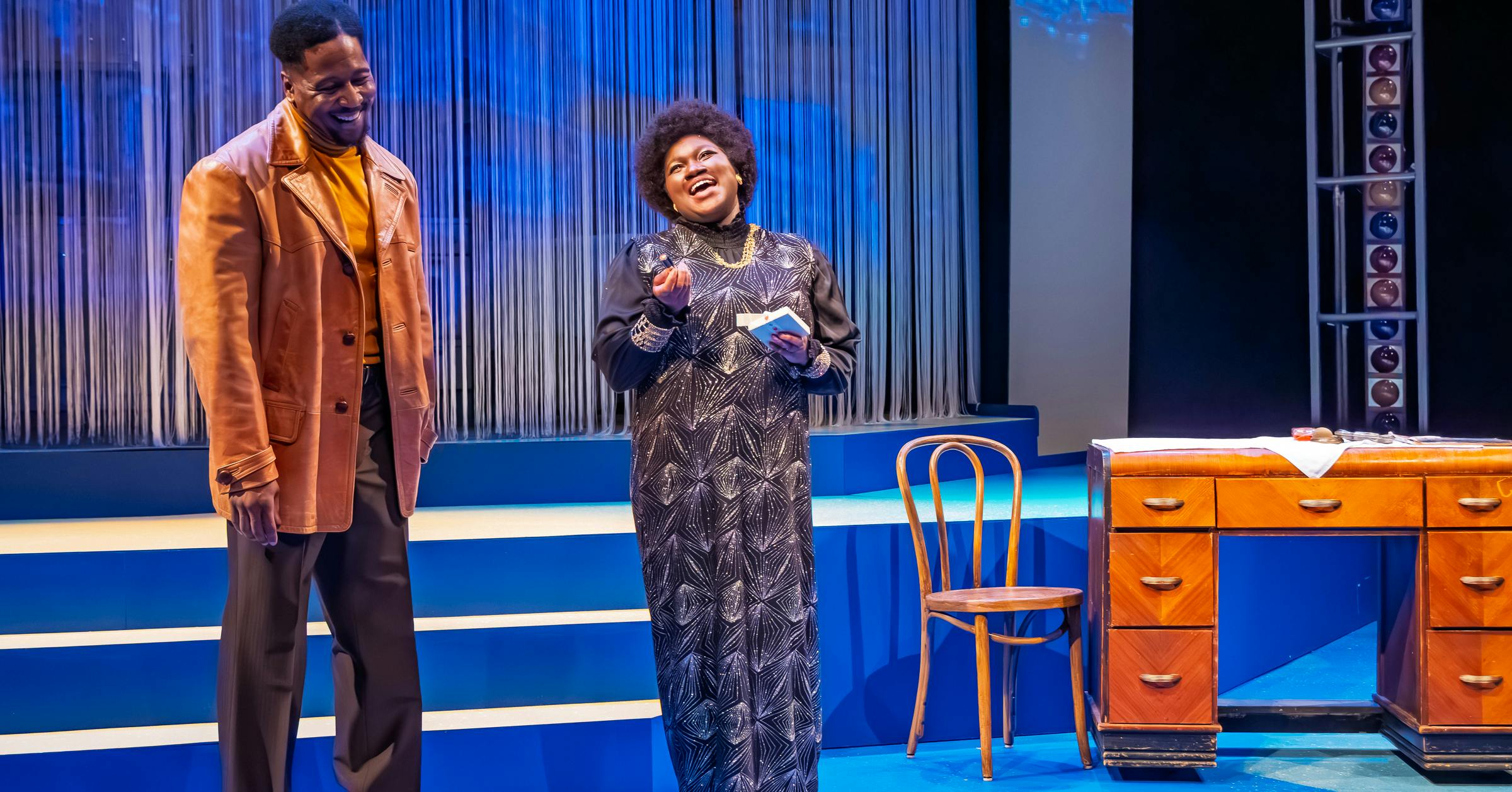
In real life, the late Minnesota club singer Doris Hines was a dazzling four-octave contralto admired by jazz greats such as Ella Fitzgerald and Duke Ellington who called her their satin doll.
Onstage in a new bio play at the History Theatre, she’s a small-to-medium figure played by soulful mezzo soprano Comfort Dolo. And her stage story includes melodramatic moments in which she screams at mice, an overdone detail to denote domestic travails.
Hines’ layered and complicated life has been distilled into choppy entertainment in “Don’t miss Doris Hines,” playwright TyLie Shider’s and director Vanessa Brooke Agnes’ new work that’s up in a world premiere in St. Paul. The show is capably performed even if it leaves us wanting more.
Remarkably, “Doris Hines” is the 148th new play to make its debut at History Theatre, a company that specializes in celebrating unique and notable Minnesota stories.
Hines’ life was marked by struggle, both to survive and to realize her artistic gifts. Born in 1923 in New York, Hines shuttled between orphanages and foster homes as a child before marrying early and bearing six kids. She died in 2015 at 91.
In the play, she’s torn between pursuing her singing career and taking care of her brood even as husband, Big Ed (Darius Dotch), wants her to focus entirely on home.
Following a singing engagement at a Minneapolis hotel, Hines eventually moves solo with her children to Minnesota, where one of her offspring, Gary Hines, would later redeem her entertainment dreams as maestro of the Grammy-winning Sounds of Blackness.
Shider uses a chronological frame for “Doris Hines,” telling her story in episodic bits and bites from pre-World War II marriage to TV talent show auditions to performances in Australia and elsewhere.
It’s full of lively action even if that newspaper-signaled ticking off years may not be the most compelling way to tell Hines’ story. A different structure, say, a thematic one, may have offered more opportunities to concentrate on the talent and light that Hines carried.
Although underscored with warmth by pianist Raymond Berg, who alternates with Aaron Vandanacker to underscore the action in the show, “Doris Hines” does not give us enough of the singer’s uninterrupted musical talent to draw us fully into the character’s passion.
The music, after all, is why there’s a play being done about her in the first place. What about it that made her want to leave her husband and relocate half a country away? What could Hines have sounded like if she could dream a world?
Dolo is a competent actor who capably shows Hines’ moods from courtship joy to marriage disappointment to talent show joy. And her Doris is steadfast in face of audition rejections. But the actor is a gorgeous singer, and it’s too bad that her voice is mostly applied to choppy snippets.
There’s not much that’s asked of Dotch, whose Big Ed snaps from a warm, understanding courter to a cold, thick-skulled husband without explanation. Dotch has a broad range and is grounded here, even if he has done stronger work.
The real discoveries in “Doris Hines” are in the smaller roles. Sure, Carmella Hines, Big Ed’s sister, is portrayed as a sassy, hands-on-hips loudmouth by Ashawnti Sakina Ford. But the actor finds freshness and heart beyond the stereotype.
Charlotte McDaniel is poised and picture perfect in three tiny roles but is especially noteworthy for her confiding warmth and unexpected glamor as Ella Fitzgerald.
Even as I wish that “Doris Hines” delivered more, I would still recommend it. For it elegantly gestures toward Hines’ drive and talent, offering tasty appetizers as a whole meal.



